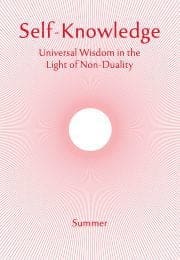The Sound of Silence
The origins of language are a mystery, but it seems clear that many words echo sounds heard in nature. Words like bang, clang and hiss, are vocalised imitations of noises occurring in the material world. Our representation of sounds made by animals or birds also has an imitative form, as with warble, twitter, howl, bark, purr.
This principle becomes more subtle where human emotions and feelings are concerned. Words like soothe and calm can have a mollifying effect, and may be seen to contrast with such words as rage, fury and fiasco. Admittedly, such judgements and associations are subjective (the word ‘slay’ is as silky as ‘soothe’), but it is fair to assume that onomatopoeia played a key part in the first expressions of human language, and that many other words, by virtue of the way they sound, have a music that is in harmony with their meaning (harmony itself being an example).
The presence of sounds, and later, words, suggests the presence of a universe of multiplicity, with forms developing and people uniting and clashing, so that the potential for noise, and the variety of noises we hear and make, become almost infinite. The universe is said to have begun with an explosion, onomatopoeiacally indicated by the word ‘bang’, but was that preceded by silence? Those who have studied the question will tell us that such thinking is not scientific, for ‘before’ and ‘after’, i.e., the concept of time itself, originated with the Big Bang. Nonetheless, we do tend to think unscientifically about this development, as if what existed before the manifestation of the universe were inevitably a realm of silence, totally free from the clash of conflict.
Subscribe or enrol for free guest access to read all of this article and Self-Knowledge online.
Already subscribed or enrolled? Log in:


